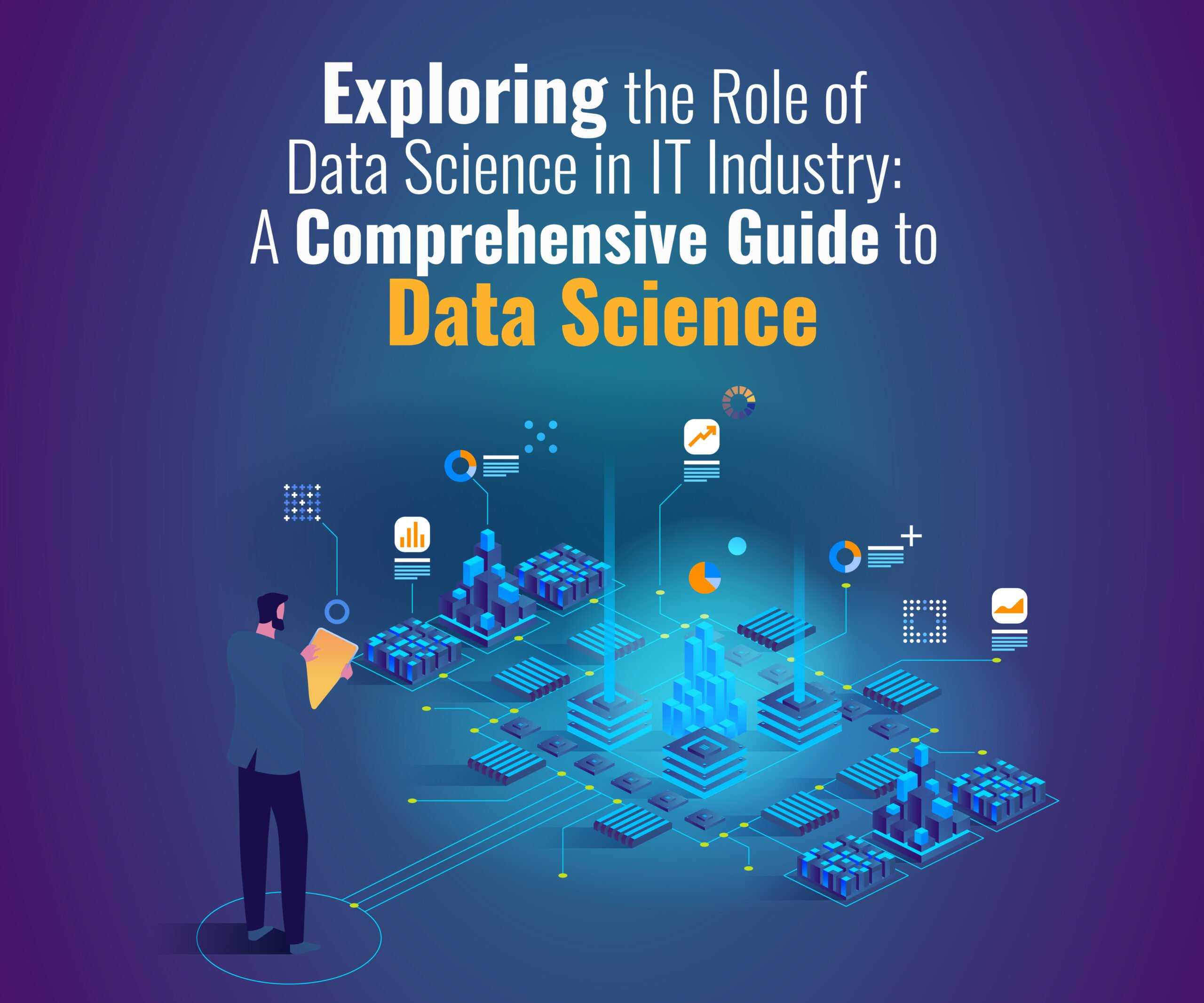Data science has become one of the most emerging fields and sought-after career pathways today. According to the research, data science is at the top of LinkedIn’s rising job ranking, with hiring growth of 37% in the last three years. Data science is becoming increasingly popular daily and revolutionising nearly every business.
Why is Data Important in Science?
Any organisation’s most valuable resource is its data. Businesses may save time and money by using technology to better understand and optimise their operations. Time and financial waste, such as lousy advertising choices, can exhaust resources and negatively affect a company.
Businesses may save waste by concentrating on marketing channels that provide the best return on investment and analysing the efficacy of different channels through smart data utilisation. Consequently, a business can increase lead generation without raising advertising expenses.
Significance of Data Science in the IT Industry
Data science in IT catalyses digital transformation and drives innovation across diverse domains:
1. Business Intelligence and Analytics: Data technology empowers organisations to gain treasured insights into consumer behaviour, marketplace traits, and operational performance. Through advanced analytics strategies, including predictive modelling and sentiment analysis, companies can optimise their techniques, keep a competitive facet, and lift consumer happiness. Due to its simplicity, even Python has become the move-to programming language for records science.
2. Machine Learning and Artificial Intelligence: Data science paperwork is the muse of Artificial intelligence and device mastering for IT answers. Image identification, natural language processing, advice systems, driverless cars, and device learning algorithms leverage information to learn and improve their performance continuously, revolutionising various aspects of the IT enterprise.
3. Cybersecurity: With the proliferation of cyber threats, record technological know-how is critical in improving cybersecurity measures. Data scientists can identify anomalies, discover potential protection breaches, and proactively mitigate risks to shield sensitive facts by analysing tremendous quantities of information generated by means of community logs, user behaviours, and machine activities. The proliferation of information in today’s virtual global has given rise to Big Data Analytics.
4. Internet of Things (IoT): The IoT environment generates good-sized data from interconnected devices and sensors. Data technology enables organisations to harness these statistics to derive actionable insights, optimise IoT deployments, and improve operational efficiency throughout manufacturing, healthcare, and clever towns. Data Analytics in IT performs a crucial position inside the IT zone via extracting actionable insights from uncooked information
5. Cloud Computing: Data technology and cloud computing synergise to release the whole capacity of information-in-depth applications. Cloud structures offer scalable infrastructure and offerings for storing, processing, and analysing massive datasets, permitting firms to leverage superior analytics skills without enormous advanced investments in hardware and software infrastructure. The role of records scientists is the backbone of data science tasks inside the IT industry.
Applications of Data Science within the IT Industry
The applications of facts technology in the IT industry are numerous and always increasing:
· Personalised Marketing: Data technology algorithms examine purchaser alternatives, buy records, and on-line behaviour to deliver personalised advertising campaigns, centred classified ads, and product pointers, enhancing client engagement and conversion rates.
· Healthcare Analytics: In the healthcare zone, data science facilitates clinical prognosis, treatment optimisation, and predictive modelling for sickness outbreaks. By analysing electronic fitness records (EHRs), genomic statistics, and scientific trial consequences, records scientists can guide healthcare experts in making records-driven selections and enhancing affected person effects.
· Financial Services: Data technology drives innovation within the financial services industry through threat control, fraud detection, algorithmic buying and selling, and personalised wealth management answers. Financial establishments can mitigate dangers by analysing market facts, transaction information, and purchaser profiles, improving regulatory compliance, and delivering tailored financial services to clients.
· Supply Chain Optimisation: Data technological know-how optimises delivery chain operations by forecasting demand, optimising inventory levels, and streamlining logistics approaches. By analysing historic sales facts, provider performance metrics, and market developments, enterprises can minimise stockouts, lower transportation expenses and raise the overall effectiveness of the supply chain.
Conclusion
The creation and use of information is a vital financial pastime in the modern world. With its capability to extract records from huge quantities of data, information technology makes it more accessible. Information technology improves our quality of life by hastily and correctly accumulating and processing large quantities of statistics to produce outcomes in hours instead of days or perhaps weeks.
Since statistics science is present in almost every commercial enterprise, the demand for data scientists is predicted to grow severalfold over the following couple of years. Data science is becoming increasingly vital every day.









0 Comments